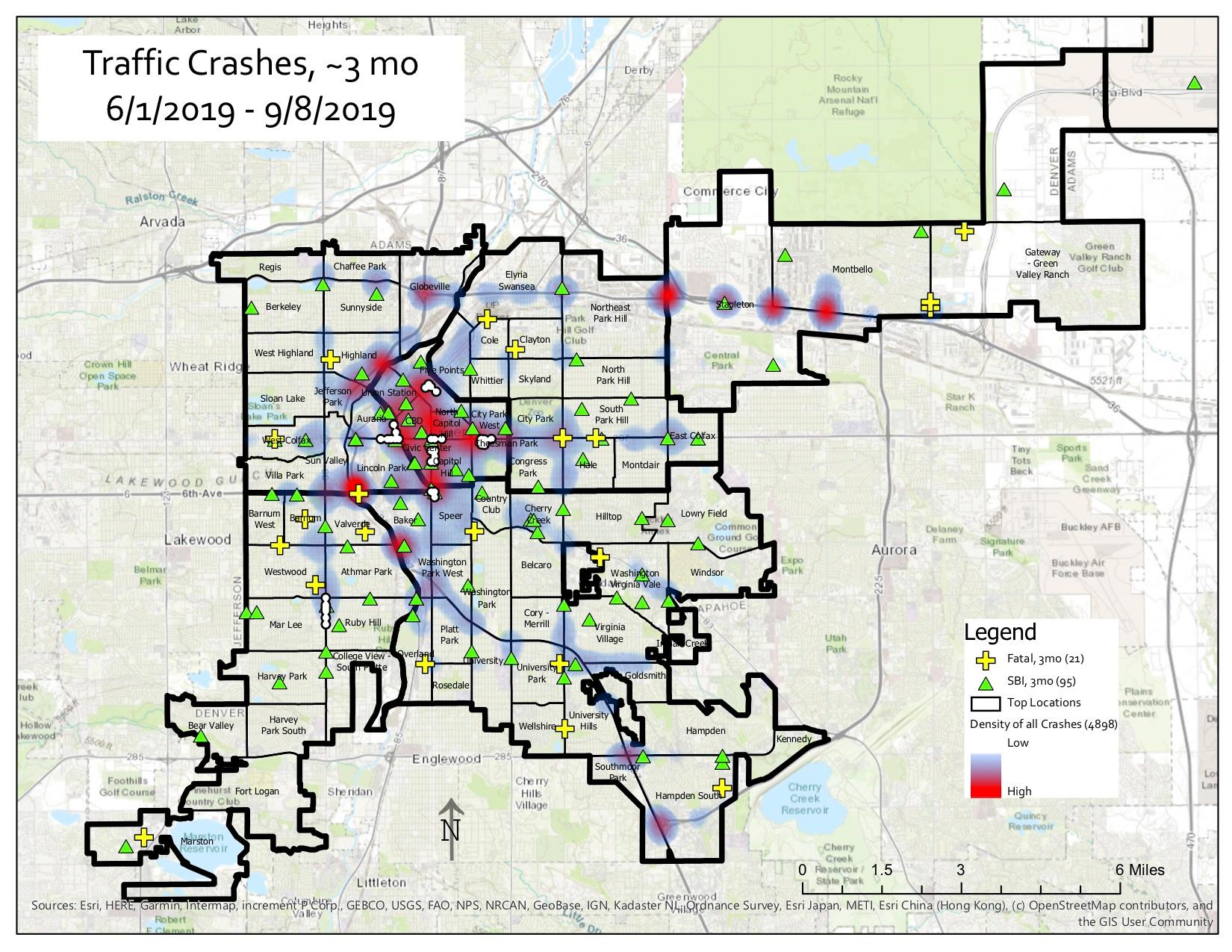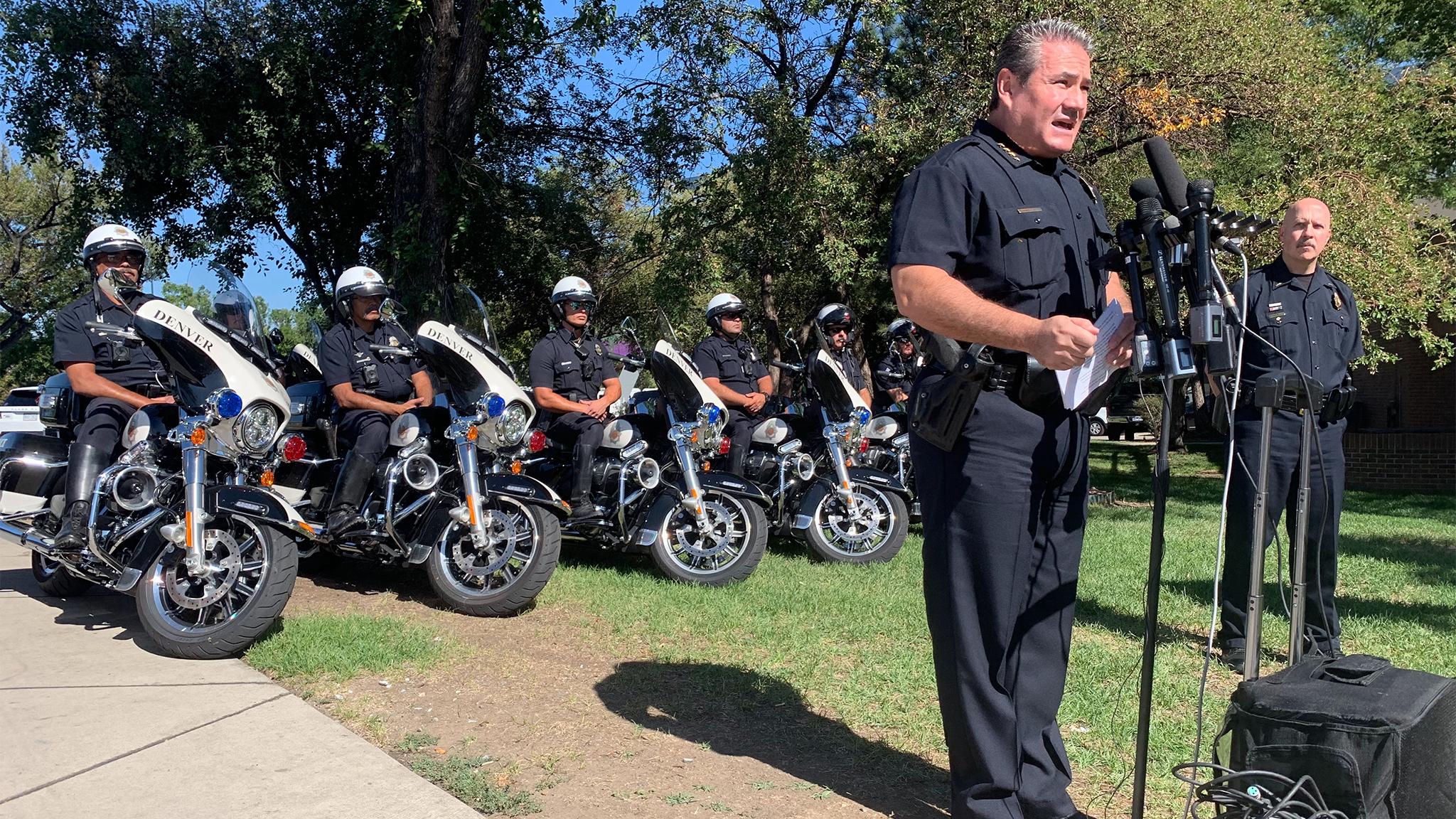The Denver Police Department has added nine officers to its traffic beat to beef up enforcement on streets in high-crash areas.
Chief Paul Pazen said 54 people have died on city roadways so far this year, including 21 fatal crashes over a three-month period starting June 1. Pazen called the numbers "completely unacceptable." The department's new efforts align with the city's Vision Zero campaign.
Lt. Rob Rock, who heads the Traffic Investigations Unit, said the nine officers will help them enforce and educate. Rock said the department typically issues about 3,500 to 3,800 tickets every 28 days.
Standing on the intersection of Colfax Avenue and Speer Boulevard, Pazen said data shows the area has seen a significant increase in crashes with serious bodily injuries and fatalities.
"We want to make sure that anybody and everybody can get from point A to point B safely, whether that's in a vehicle, on a bicycle, on foot or on a scooter," Pazen said. "That is our goal, to make sure that we are resourcing this unit appropriately in order to accomplish that goal."
The department shared a map depicting traffic crashes over a three-month period. They're areas Pazen said he hopes to slow down drivers and increase adherence to traffic laws.

Distracted driving, aggressive driving, not wearing a seat belt, impaired driving and speeding are the top five factors behind most fatal crashes in Denver, according to the department. Pazen said most are avoidable: "Believe it or not, in this day and age, people (are) still not wearing seatbelts."
The additional officers will educate as well as enforce. He urged drivers to be mindful that "cars are dangerous machines," adding they should keep an eye out for "bicyclists and pedestrians and people on scooters."
"We cannot over-emphasize the fact that we need every person in the Denver community and the surrounding communities that commute to Denver to help us," Rock said.
The nine new officers are recent police academy grads, Pazen said. Three of the nine officers will conduct commercial motor vehicle inspections. As some of these larger vehicles avoid the highway and are pushed into neighborhood streets, Pazen said the department wants large vehicles to adhere to safety checks for things like breaks, weight limits and driver log inspections, to ensure they're not overworking.












